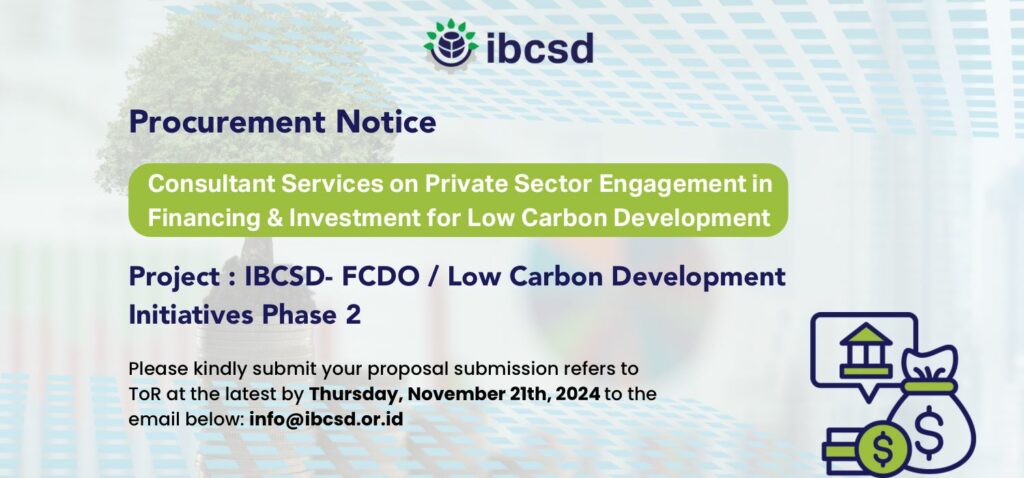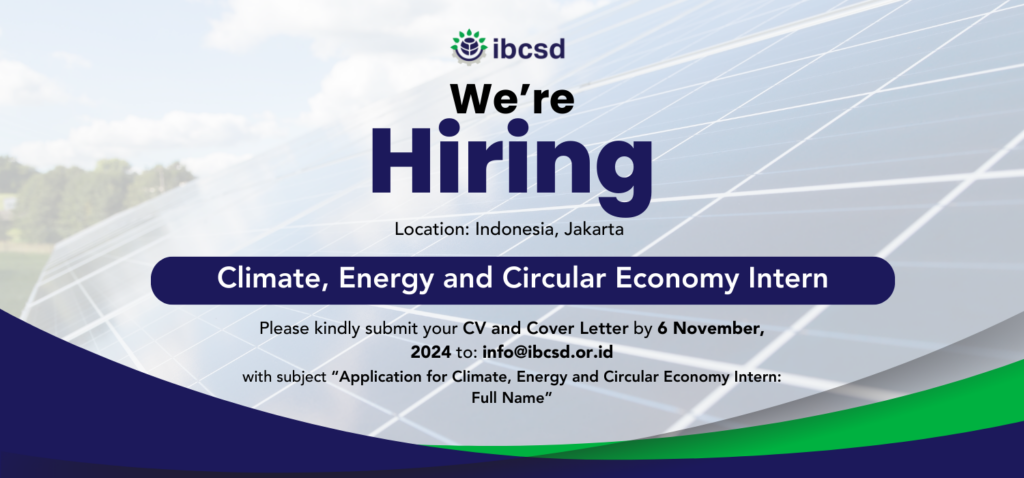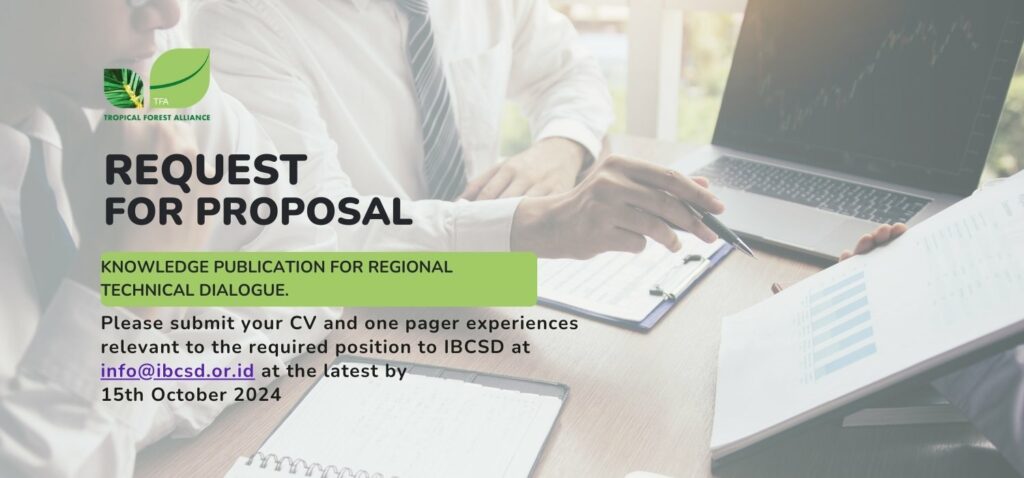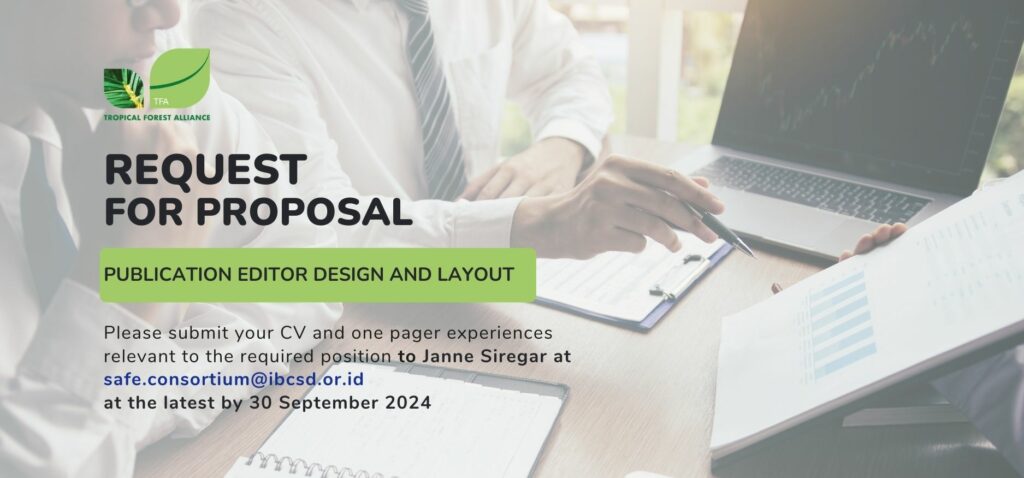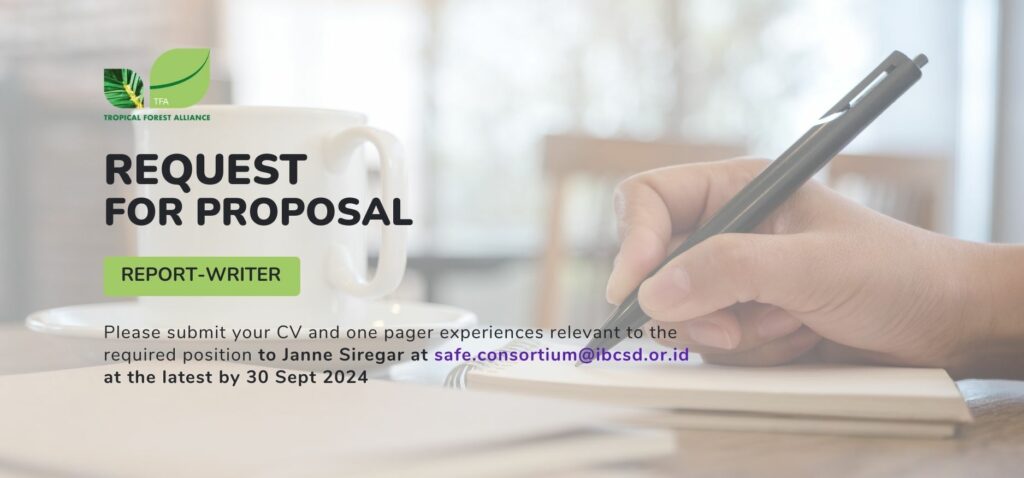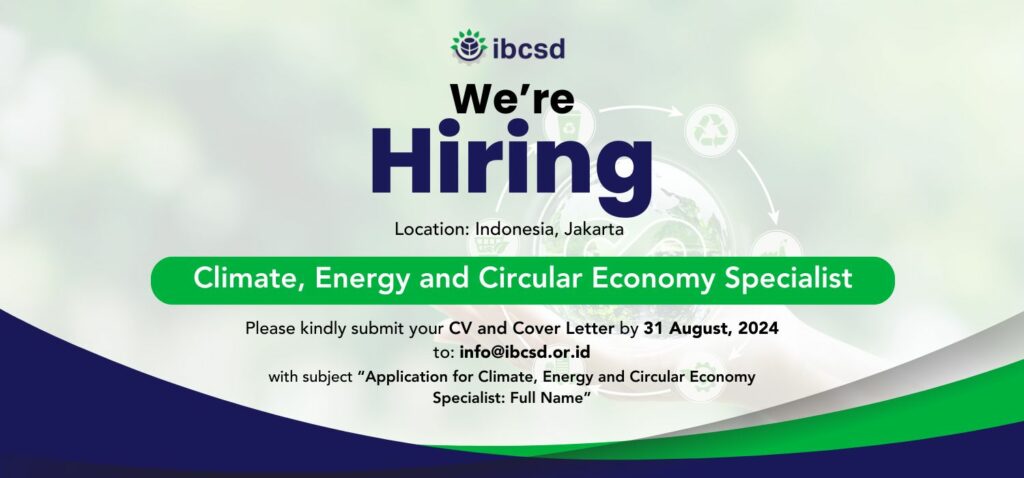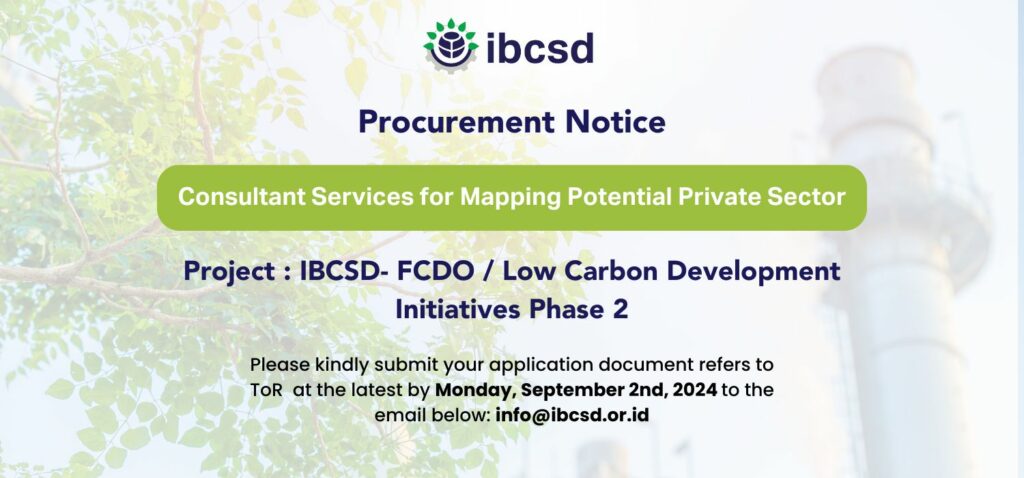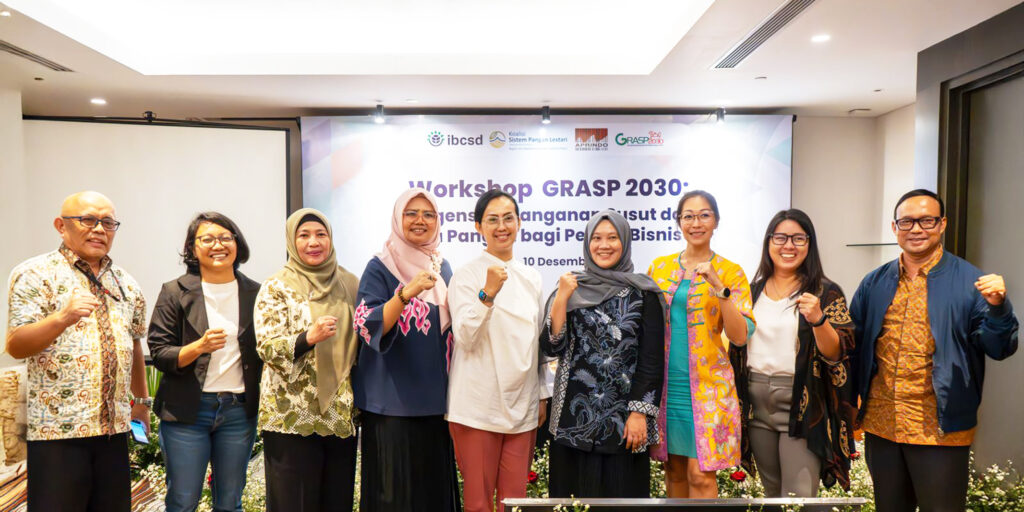
IBCSD Gelar Workshop GRASP 2030, Perkuat Komitmen Penanganan Susut dan Sisa Pangan di Indonesia
Pada rantai sektor pangan, seluruh sektor bisnis berpotensi menghasilkan susut dan sisa pangan (SSP). Data menunjukkan bahwa sekitar 33% makanan yang diproduksi secara global hilang atau terbuang, menurut FAO pada 2019. Menanggapi hal tersebut, Indah Budiani, Direktur Eksekutif IBCSD, dalam sambutannya menekankan pentingnya sektor bisnis dalam menangani masalah SSP yang semakin mendesak. “Susut dan sisa pangan bukan hanya masalah lingkungan, tetapi juga merupakan tantangan ekonomi besar. Sebagai sektor yang berperan penting dalam rantai pasok pangan, bisnis memiliki tanggung jawab untuk mengurangi dampak SSP ini. Kami berharap workshop ini dapat menjadi wadah untuk berbagi solusi dan mendorong aksi yang lebih terstruktur dari sektor bisnis dalam mengatasi masalah ini,” ujar Indah.
Acara ini merupakan bagian dari kegiatan GRASP 2030 (Gotong Royong Atas Susut dan Sisa Pangan di 2030), sebuah inisiatif perjanjian sukarela yang bertujuan mengurangi Susut dan Sisa Pangan (SSP) melalui kolaborasi antara sektor swasta, pemerintah, dan masyarakat. Angelique Dewi, Chairwoman GRASP 2030, menyoroti peran penting GRASP 2030 dalam menciptakan kolaborasi lintas sektor. “GRASP 2030 adalah inisiatif yang mengajak berbagai aktor multipihak dalam rantai pangan untuk berkolaborasi dalam mencapai pengurangan SSP. Kami percaya bahwa melalui kolaborasi yang erat dan dukungan bersama, kita dapat mengurangi susut dan sisa pangan secara lebih efektif dan berkelanjutan di Indonesia,” jelas Angelique.
Workshop ini menghadirkan berbagai narasumber dari sektor pemerintah, bisnis, serta aktor penyelamat pangan untuk berbagi pengetahuan, praktik terbaik, dan solusi inovatif. Acara ini juga memberikan ruang untuk diskusi yang lebih mendalam tentang regulasi, kebijakan, dan strategi yang diperlukan untuk mendorong sektor bisnis dalam mengurangi SSP.
Yuvlinda Susanta, Wakil Ketua Umum APRINDO, menegaskan peran penting sektor ritel dalam upaya pengurangan SSP. “Sektor ritel, sebagai bagian dari rantai pasok pangan, sejatinya memiliki kekuatan untuk memengaruhi perilaku konsumen, mengoptimalkan manajemen inventaris, dan menerapkan solusi inovatif untuk meminimalkan sisa dan susut pangan pangan. APRINDO ikut mendorong kerja sama dengan berbagai pihak dalam upaya mencapai efisiensi dan pengurangan SSP tersebut,” ujar Yuvlinda.
Bappenas mencatat bahwa di Indonesia, 115-184 kg pangan per kapita terbuang tiap tahun. Ini memicu kerugian ekonomi hingga Rp 551 triliun, emisi GRK 7,29% dari total nasional, dan hilangnya nutrisi untuk 125 juta orang. Hal ini semakin menekankan pentingnya sektor bisnis mengambil langkah konkret dalam mengatasi SSP. Dalam acara ini, pentingnya perusahaan di sektor pangan memiliki target penurunan SSP, melakukan pengukuran, serta menyusun strategi penurunan SSP melalui pendekatan Target-Menghitung-Aksi (Target-Measure-Act/TMA) disampaikan oleh Michael Jones, Senior International Partnership Manager WRAP.
Untuk itu, workshop ini juga akan memperkenalkan Metode Baku Perhitungan Susut dan Sisa Pangan yang disusun dan diluncurkan oleh Koalisi Sistem Pangan Lestari (KSPL) bersama para mitranya, Badan Pangan Nasional (BAPANAS), dan Kementerian PPN/Bappenas pada 24 September 2024 silam. “Kompleksitas permasalahan pangan yang kita hadapi saat ini hanya dapat diatasi dengan gotong royong dari seluruh pihak, termasuk sektor bisnis. Metode Baku Perhitungan SSP ini akan memungkinkan sektor bisnis mengidentifikasi jumlah SSP yang mereka hasilkan, menentukan target penurunan, mengembangkan strategi dan kebijakan, dan pada akhirnya berkontribusi nyata untuk mengurangi SSP dari kegiatan bisnisnya,” jelas Gina Karina, Kepala Sekretariat KSPL. Sesi penyampaian metode baku perhitungan ini dipandu oleh mitra KSPL, Eva Bachtiar yang merupakan Pendiri dan CEO Garda Pangan.
Melalui workshop ini, IBCSD berharap adanya kolaborasi yang lebih kuat antara GRASP 2030 dan seluruh mitra di sepanjang rantai pangan dalam mengatasi masalah SSP. Dengan kontribusi aktif semua pihak, Indonesia diharapkan dapat mencapai target pengurangan SSP dan menciptakan sistem pangan yang lebih lestari.
Tentang IBCSD:
Indonesia Business Council for Sustainable Development (IBCSD) adalah sebuah asosiasi yang dipimpin oleh para CEO perusahaan yang beroperasi di Indonesia, yang memiliki komitmen yang sama untuk mempromosikan pembangunan berkelanjutan melalui pertumbuhan ekonomi yang berkelanjutan, keseimbangan ekologi, dan kemajuan sosial. IBCSD memfasilitasi kepemimpinan bisnis yang berkelanjutan dengan mempromosikan praktik-praktik terbaik, bermitra dengan pemerintah dan masyarakat sipil, serta memberikan solusi bagi kebijakan Indonesia dalam isu-isu keberlanjutan.
Tentang KSPL: Koalisi Sistem Pangan Lestari (KSPL) merupakan bagian dari koalisi Food and Land Use Coalition (FOLU) yang berkomitmen untuk mentransformasi cara kita memproduksi dan mengonsumsi makanan, serta menggunakan lahan untuk manusia, alam, dan bumi menjadi lebih lestari. Saat ini terdapat 12 mitra yang tergabung dalam KSPL, yaitu Center for International Forestry Research (CIFOR-ICRAF), Center for Indonesian Policy Studies (CIPS), EntreVA, Global Alliance for Improved Nutrition (GAIN) Indonesia, Garda Pangan, Yayasan Humanis dan Inovasi Sosial (Humanis), Indonesia Business Council for Sustainable Development (IBCSD), Yayasan Keanekaragaman Hayati (KEHATI), Koalisi Rakyat untuk Kedaulatan Pangan (KRKP), Parongpong RAW Lab, PT SYSTEMIQ Lestari Indonesia, dan WRI Indonesia. | instagram.com/sistempanganlestari
Tentang APRINDO:
APRINDO, Asosiasi Pengusaha Ritel Indonesia, adalah organisasi terkemuka yang mewakili industri ritel moderen di Indonesia. APRINDO berfungsi sebagai wadah bagi para pelaku usaha ritel modern berjejaring nasional ataupun pemain lokal, dalam memperjuangkan aspirasi anggota, dan berkontribusi terhadap pertumbuhan dan pengembangan sektor Ritel di Indonesia. APRINDO memiliki sekitar 150 anggota, yang terdiri dari perusahaan ritel lokal dan jaringan nasional, dengan total 45.000 gerai ritel. Pengurus pusat asosiasi ini (DPP) berada di Jakarta, sementara di daerah diwakili oleh Koordinator Wilayah dan Pengurus Daerah (DPD) yang berada di lebih dari 20 provinsi.
Kontak:
Nurina Izazi, Communications Manager IBCSD, [email protected], +62-813-3261-4268
Sakinah U. Haniy, Communications Lead KSPL, [email protected], +62-813-8343-5507
